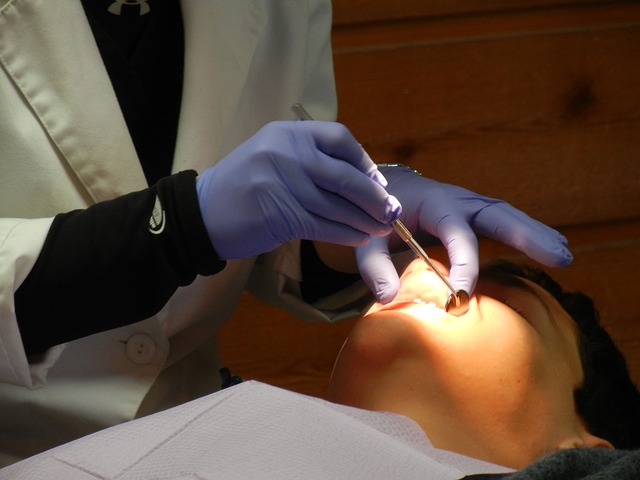It’s midnight, you wake up feeling a pain in your mouth you have never felt before, it’s excruciating. What could it possibly be? Dental emergencies always strike at the worst time and often can be out of the blue.
Whether it’s a knocked-out tooth, swelling, or a cracked molar, dental emergencies can be scary and overwhelming. But knowing what counts as an emergency and how to respond can make all the difference. At Mitcham Dental, we’re here to support you when things don’t go to plan. In this blog, we’ll walk you through the most common dental emergencies, what to do in the moment, and how we can help get you smiling again.
What Are Dental Emergencies?
A dental emergency is any issue involving your teeth, gums or jaw that requires urgent attention to stop bleeding, relieve pain, or save a tooth. These issues can develop suddenly or be the result of untreated dental problems that have gotten worse over time.
Some common signs of a dental emergency include:
- Severe tooth pain
- Bleeding from the mouth
- Swollen gums or face
- Broken, cracked or knocked-out teeth
- Signs of infection such as pus or a bad taste in the mouth
If you’re unsure whether your situation qualifies as an emergency, it’s always safer to give us a call. At Mitcham Dental, we’ll assess your symptoms and let you know the best course of action.
Dental Emergency Examples (And What To Do)
Dental emergencies come in all shapes and sizes. Here are some of the most common dental emergencies we see at our Mitcham clinic:
1. Toothache
A persistent or severe toothache is one of the most common dental emergencies. It could be caused by decay, an infection, gum disease or even a cracked tooth. If the pain is sharp, throbbing or doesn’t ease with over-the-counter medication, don’t ignore it, it’s your body’s way of telling you something’s not right.
What to do:
Rinse your mouth with warm salt water to help reduce inflammation. You can take pain relief, but avoid applying heat or aspirin directly to the tooth. Contact our team promptly, we’ll help pinpoint the cause and get you out of pain.
2. Chipped or Broken Tooth
Whether it’s from biting into something hard or a sudden knock to the face, a chipped or broken tooth can be painful and may leave the inner layers of your tooth exposed to bacteria. Even small chips can worsen if left untreated.
What to do:
Rinse your mouth with warm water and gently clean the area. If there’s swelling, apply a cold compress to the outside of your cheek. Save any broken pieces if possible, and reach out to us so we can assess the damage and restore your smile.
3. Knocked-Out Tooth
This is one of the more serious types of dental emergencies, but the good news is, fast action can often save the tooth. Timing is critical here, especially for adult (permanent) teeth.
What to do:
Pick the tooth up by the crown (not the root), gently rinse it if dirty, and try to reinsert it into the socket. If that’s not possible, place it in milk or keep it inside your cheek. Then call us immediately, ideally within 30 minutes, for the best chance of saving the tooth. If it is on a weekend and we are not open, please attend the Royal Melbourne Dental Hospital in Carlton.
4. Dental Abscess
An abscess is a painful infection often found at the root of a tooth or in the gum. It may cause swelling, fever, a bad taste in your mouth, or even difficulty swallowing. This is a dental emergency that should never be ignored, as the infection can spread to other parts of the body.
What to do:
Avoid touching or pressing on the area. Use a cold compress to help reduce swelling and rinse your mouth with warm salt water. Contact us straight away, we can treat the infection and relieve your pain before it worsens.
5. Lost Filling or Crown
It might not feel urgent at first, but a lost filling or crown can leave your tooth exposed and vulnerable to decay, discomfort, or further breakage. The sooner it’s repaired, the better.
What to do:
Avoid chewing on the affected side, and try to keep the area clean by gently rinsing with warm water. If you still have the crown, keep it safe and bring it with you. Book in with us and we’ll restore the tooth so you can eat and smile with confidence again.
6. Soft Tissue Injuries
Biting your cheek, cutting your tongue, or injuring your gums can be surprisingly painful and if bleeding doesn’t stop, it can become a more serious issue.
What to do:
Apply gentle pressure with a clean cloth or gauze to stop the bleeding. Use a cold compress to reduce swelling and discomfort. If the bleeding doesn’t stop after 10–15 minutes, call us or head to your nearest emergency dental clinic.
No one plans for a dental emergency, but being able to spot the signs can help you act quickly and wisely when the unexpected happens. From knocked-out teeth to painful infections, knowing the most common dental emergencies and how to handle them can save you time, stress and long-term damage.
Need urgent dental care in Mitcham? Contact Mitcham Dental today. We’re here to help you feel better, faster.






